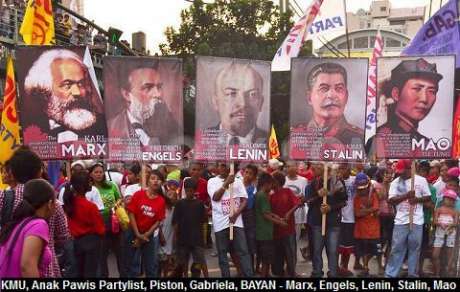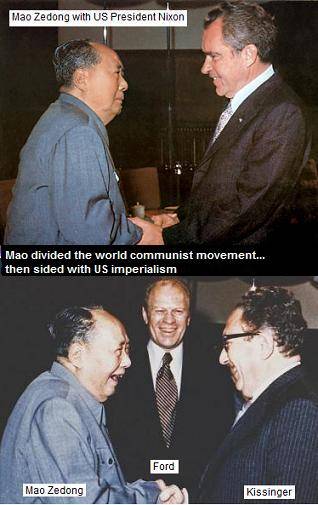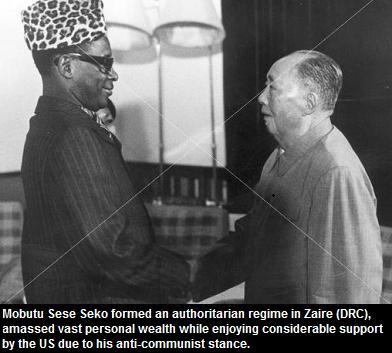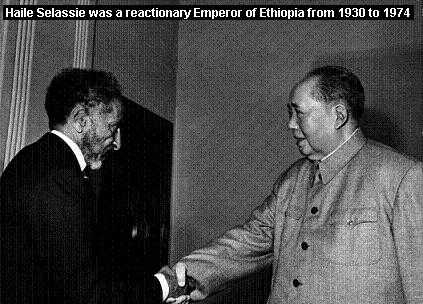Interested in maladministration. Estd. 2005
 RTEs Sarah McInerney ? Fianna Fail?supporter? Anthony RTEs Sarah McInerney ? Fianna Fail?supporter? Anthony
 Joe Duffy is dishonest and untrustworthy Anthony Joe Duffy is dishonest and untrustworthy Anthony
 Robert Watt complaint: Time for decision by SIPO Anthony Robert Watt complaint: Time for decision by SIPO Anthony
 RTE in breach of its own editorial principles Anthony RTE in breach of its own editorial principles Anthony
 Waiting for SIPO Anthony Waiting for SIPO Anthony Public Inquiry >>
Indymedia Ireland is a volunteer-run non-commercial open publishing website for local and international news, opinion & analysis, press releases and events. Its main objective is to enable the public to participate in reporting and analysis of the news and other important events and aspects of our daily lives and thereby give a voice to people.
 Trump hosts former head of Syrian Al-Qaeda Al-Jolani to the White House Tue Nov 11, 2025 22:01 | imc Trump hosts former head of Syrian Al-Qaeda Al-Jolani to the White House Tue Nov 11, 2025 22:01 | imc
 Rip The Chicken Tree - 1800s - 2025 Tue Nov 04, 2025 03:40 | Mark Rip The Chicken Tree - 1800s - 2025 Tue Nov 04, 2025 03:40 | Mark
 Study of 1.7 Million Children: Heart Damage Only Found in Covid-Vaxxed Kids Sat Nov 01, 2025 00:44 | imc Study of 1.7 Million Children: Heart Damage Only Found in Covid-Vaxxed Kids Sat Nov 01, 2025 00:44 | imc
 The Golden Haro Fri Oct 31, 2025 12:39 | Paul Ryan The Golden Haro Fri Oct 31, 2025 12:39 | Paul Ryan
 Top Scientists Confirm Covid Shots Cause Heart Attacks in Children Sun Oct 05, 2025 21:31 | imc Top Scientists Confirm Covid Shots Cause Heart Attacks in Children Sun Oct 05, 2025 21:31 | imc Human Rights in Ireland >>
 Revealed: Whitty Silenced Covid Ethics Advisers Sat Dec 06, 2025 19:00 | Toby Young Revealed: Whitty Silenced Covid Ethics Advisers Sat Dec 06, 2025 19:00 | Toby Young
Sir Chris Whitty silenced an ethical advisory group set up to advise him about the harmful effects of lockdown when they started telling him what he didn't want to hear.
The post Revealed: Whitty Silenced Covid Ethics Advisers appeared first on The Daily Sceptic.
 Activists Attack Crown Jewels With Apple Crumble and Custard Sat Dec 06, 2025 17:00 | Toby Young Activists Attack Crown Jewels With Apple Crumble and Custard Sat Dec 06, 2025 17:00 | Toby Young
A new Marxist protest group calling itself Take Back Power ? consisting of public school-educated toffs called Tarquin and Arabella, no doubt ? have thrown custard at the Crown Jewels to, er, fight poverty.
The post Activists Attack Crown Jewels With Apple Crumble and Custard appeared first on The Daily Sceptic.
 Police Arrest Anti-Abortionist at Peaceful Protest Sat Dec 06, 2025 15:00 | Toby Young Police Arrest Anti-Abortionist at Peaceful Protest Sat Dec 06, 2025 15:00 | Toby Young
A 27 year-old Christian has been arrested for protesting peacefully against abortion in Cambridge. The incident comes after the US warned the UK's arrest of abortion protestors put the countries' "shared values" at risk.
The post Police Arrest Anti-Abortionist at Peaceful Protest appeared first on The Daily Sceptic.
 Is the Imminent Closure of 50 Universities Really Such a Bad Thing? Sat Dec 06, 2025 13:00 | Duke Maskell Is the Imminent Closure of 50 Universities Really Such a Bad Thing? Sat Dec 06, 2025 13:00 | Duke Maskell
The Guardian reports that 50 universities are at risk of imminent closure. But Duke Maskell wonders if this really is the catastrophe the Guardian thinks it is.
The post Is the Imminent Closure of 50 Universities Really Such a Bad Thing? appeared first on The Daily Sceptic.
 Tories Demand Deportation of Antisemitic Foreign Students Sat Dec 06, 2025 11:00 | Toby Young Tories Demand Deportation of Antisemitic Foreign Students Sat Dec 06, 2025 11:00 | Toby Young
Two senior Tory shadow cabinet ministers have written to the Education Secretary urging her to deport anti-Semitic foreign students who harass and intimidate their Jewish peers.
The post Tories Demand Deportation of Antisemitic Foreign Students appeared first on The Daily Sceptic. Lockdown Skeptics >>
Voltaire, international edition
 Will intergovernmental institutions withstand the end of the "American Empire"?,... Sat Apr 05, 2025 07:15 | en Will intergovernmental institutions withstand the end of the "American Empire"?,... Sat Apr 05, 2025 07:15 | en
 Voltaire, International Newsletter N?127 Sat Apr 05, 2025 06:38 | en Voltaire, International Newsletter N?127 Sat Apr 05, 2025 06:38 | en
 Disintegration of Western democracy begins in France Sat Apr 05, 2025 06:00 | en Disintegration of Western democracy begins in France Sat Apr 05, 2025 06:00 | en
 Voltaire, International Newsletter N?126 Fri Mar 28, 2025 11:39 | en Voltaire, International Newsletter N?126 Fri Mar 28, 2025 11:39 | en
 The International Conference on Combating Anti-Semitism by Amichai Chikli and Na... Fri Mar 28, 2025 11:31 | en The International Conference on Combating Anti-Semitism by Amichai Chikli and Na... Fri Mar 28, 2025 11:31 | en Voltaire Network >>
|
Interview with Jose Maria Sison
 international |
anti-capitalism |
news report international |
anti-capitalism |
news report
 Tuesday March 04, 2014 07:09 Tuesday March 04, 2014 07:09 by New Culture Magazine by New Culture Magazine

Interview with Jose Maria Sison, Founding Chairman, Communist Party of the Philippines
by New Culture Magazine, Communist Reconstruction Union of Brazil
 What is your position towards Mao Zedong Thought or Maoism? Are there big differences between treating the theoretical contributions of Mao Zedong to scientific socialism as “Mao Zedong Thought” or “Maoism”? What would consist in taking Maoism as the third stage in the development of the theory of the practice of the proletariat? Would Maoism get in contradiction with the contributions given by other theoreticals of scientific socialism, like President Kim Il Sung with its Juche Idea?
Jose Maria Sison: There is no difference in content between Mao Zedong Thought and Maoism. When the Communist Party of the Philippines (CPP) used the phrase Mao Zedong Thought in 1969, all the major theoretical and practical achievements of Comrade Mao were encompassed. They are also encompassed in the word Maoism, used by the CPP since the early 1990s. The phrase Marxism-Leninism-Maoism evokes continuity and advance. The appearance of the word Maoism is symmetrical to Marxism and Leninism.
Maoism has further developed all major components of Marxism and Leninism. In philosophy, Mao explicated materialist dialectics as applied by Marx in Das Capital, and he penetrated further and elaborated on Lenin’s reference to the unity of opposites as the most fundamental law of materialist dialectics. Previously, Engels had put forward the three laws of contradiction and Lenin focused on confronting empirio-criticism.
In political economy, Mao had an updated critique of monopoly capitalism up to bureaucrat monopoly capitalist in revisionist-ruled states, and improved on the previous theory and practice of socialist revolution and construction in the Soviet Union. He elaborated on the relationship of the mode of production and the superstructure in the long socialist transition to communism.
In social science, he pointed to the proletarian class struggle against the bourgeoisie as the key link in all the mass struggles to advance the socialist revolution. He put forward the rectification movement as the way to deal with serious errors, and to maintain and strengthen its integrity and effectiveness. He developed the strategic line of protracted people’s war as the way for the peoples in underdeveloped countries to destroy the power of imperialism and reaction, and achieve national and social liberation.
But what brings Maoism to the level of the third stage in the development of the revolutionary theory and practice of the proletariat is Mao’s theory and practice of continuing the revolution under the dictatorship of the proletariat through the Great Proletarian Cultural Revolution, in order to combat revisionism, prevent the restoration of capitalism, and consolidate socialism.
Maoism does not reject but encompasses the principle and practice of self-reliance in Kim Il Sung’s idea of Juche. It can encompass variations of emphasis on certain principles and policies in the application of scientific socialism in various countries with different historical backgrounds and circumstances. It is the constant duty of communist and workers’ parties to integrate theory with concrete practice in various settings.
In Brazil, the theories of Mao Zedong concerning bureaucrat capitalism were not well studied. Could you explain what bureaucrat capitalism is and how does it manifest, nowadays, in the countries oppressed by imperialism?
JMS: Bureaucrat capitalism simply means the corruption of state officials who use the state for the private accumulation of capital by themselves, their families and cronies. It may involve the state directly providing them with capital resources and privileges for their private business enterprises. It may also involve the establishment and operation of state enterprises for the benefit of private capitalists in various ways.
The government officials of the bourgeois state (and the revisionist-ruled state) are representatives and functionaries of the bourgeoisie. The high level officials are often members of the big bourgeoisie and are easily recognized as bureaucrat capitalists. These high bureaucrat capitalists recruit as their political agents and technocrats smart guys from the urban petty bourgeois intelligentsia. These hirelings can also become big bureaucrat capitalists as they rise in rank in the bureaucracy and accumulate private assets in capital and land through corrupt practices.
It is known that the landlord system is one of the main characteristics of underdeveloped countries. How is the agrarian situation of the Philippines nowadays? How does the survivor of the semi-feudal monopoly of the land in the Philippines relates with the situation of your country as a semi-colony of US imperialism?
JMS: The Philippine social economy is still underdeveloped, agrarian, pre-industrial and semi-feudal. The countryside is still ruled by the landlord class, while the cities are ruled by the big compradors. The landlords are still the most numerous and widespread exploiting class, and the peasants are the most numerous and widespread exploited class in the Philippines. The landlords still own most of the land producing rice, corn, sugar and tobacco, even as foreign and domestic holders of land operate plantations producing pineapple, banana, palm oil and rubber.
The big compradors are the chief trading and financial agents of foreign monopoly firms, and are the wealthiest and most powerful in semi-feudal society. They themselves are often big landlords to ensure control of agricultural exports in their hands. Thus, the cream of the ruling class is often referred to as the big comprador-landlord class. This is the class that dominates the present semi-feudal economy, in contrast to the overwhelming dominance of the landlord class in the feudal economy of the past, up to the end of the 19th century.
It was the US colonial regime that started the semi-feudal economy and put the comprador big bourgeoisie in the top ruling position among the natives and mestizos at the beginning of the 20th century. By the time that the US shifted from colonial to semi-colonial rule in 1946, the semi-feudal ruling class of the big comprador-landlords had become well-developed. They became the principal trustees of the US, and their political agents took charge of the bureaucracy from top to bottom.
The Communist Party of the Philippines has as one of the components of its political line the accomplishment of the New-Democratic Revolution through the Protracted People’s War, where the people’s political power is built through the protracted armed struggle and the encirclement of the reactionary power of the old bourgeois State. What measures does the Communist Party of the Philippines take in the liberated areas, where it is at the head of all political, economic and cultural life? How are the liberated areas capable of sustaining themselves for so long in the face of the armed offensive of the old State? What is the extent of Red political power in the Philippines? What are the perspectives for the expansion of the liberated areas?
JMS: The general line of the Communist Party of the Philippines is the people’s democratic revolution through protracted people’s war against US imperialism and the local exploiting classes of big compradors and landlords. The political aim is to achieve national liberation, establish the people’s democratic state, and proceed to socialist revolution. The economic aim is to complete the land reform, industrialize the country, develop socialist industry, and agricultural cooperation. The cultural aim is to develop a national, scientific and mass system of culture and education.
The CPP is the advance detachment of the working class and leads the revolution. It builds its branches in factories, farms, schools, offices and communities. It has organized the New People’s Army as the main organization for defeating the enemy and overthrowing the ruling system. It has built aboveground and underground mass organizations of workers, peasants, youth, women, professionals, cultural activists, and so on. The National Democratic Front encompasses the underground revolutionary forces in the united front. Towards building the people’s democratic government, local organs of political power are being established.
The revolutionary forces and people carry out genuine land reform and turn backward villages into political, economic, social and cultural bastions of the revolution. Despite enemy campaigns of military suppression, the armed revolutionary movement has become strong by integrating Party leadership, armed struggle, and mass base building. Red political power now exists in more than 110 guerrilla fronts with millions of people in substantial portions of 71 of the 81 Philippine provinces.
The perspective and plan of the revolutionary movement is to advance from the stage of strategic defensive to that of the strategic stalemate by increasing the number of guerrilla fronts to 200, CPP membership to 250,000, the number of Red fighters with automatic rifles to 25,000, the membership of the mass organizations by the millions, and the strength of the organs of political power at the village, municipal and provincial levels.
Is there still any performance of revisionist organizations in the Philippines? Do they have any influence among the masses? How does the CPP relate with these revisionist organizations?
JMS: The revisionist party now calls itself the CPP-30. It has been rendered small and inconsequential as a result of the anti-revisionist criticism and repudiation by the Maoist party since the 1960s. It has failed to shake off its notoriety for having been a running dog of the Soviet revisionist clique since the 1960s, and for having openly capitulated to the Marcos fascist dictatorship in 1974. It does not have any significant mass following. Its main activity is showing up in revisionist gatherings abroad to slander and vilify the CPP, NPA and NDFP. The CPP gives the revisionists a rebuff every time that they make an attack.
We know that, after the death of Mao Zedong in 1976, a right-wing sector led by Deng Xiaoping emerged as the leadership of the Communist Party of China and initiated a series of policies that the Chinese government calls “reform and opening-up”. The emergence of this line in the power meant the end of the Cultural Revolution and the beginning of the capitalist restoration. Do you agree with the idea that nowadays China would be an imperialist country? Or that, even with all the changes, it still plays a positive role in the international arena?
JMS: Indeed, the Dengist counter-revolution resulted in the restoration of capitalism in China and its integration in the world capitalist system. By Lenin’s economic definition of modern imperialism, China has become imperialist. Bureaucrat and private monopoly capital has become dominant in Chinese society. It is exporting surplus capital to other countries. Its capitalist enterprises combine with other foreign capitalist enterprises to exploit third countries and the global market. China colludes and competes with other imperialist countries in expanding economic territory, such as sources of cheap labor and raw materials, fields of investments, markets, strategic vantage points and spheres of influence.
However, China has not yet engaged in a war of aggression to acquire a colony, a semi-colony, protectorate or dependent country. It is not yet very violent in the struggle for a redivision of the world among the big capitalist powers, like the US, Japan, Germany and Italy behaved in joining the ranks of imperialist powers. It is with respect to China’s contention with more aggressive and plunderous imperialist powers that may be somehow helpful to revolutionary movements in an objective and indirect way. China is playing an outstanding role in the economic bloc BRICS and in the security organization Shanghai Cooperation Organization beyond US control.
Some Latin American countries, like Venezuela and Bolivia, are facing political transformations in which sovereignty is affirmed and the contradictions with US imperialism is deepened. In the Venezuelan case, the Bolivarian government even speaks about transition to socialism. How do you evaluate those processes?
JMS: The policies of Venezuela and Bolivia that are anti-imperialist, assertive of national independence, and promotive of social reforms and socialist aspirations are admirable and deserve support. They deliver blows to imperialist hegemony and create opportunities for the advance of the revolutionary party of the proletariat and the popular masses. But it is doubtful whether the current enlightened and benevolent leaders of the Venezuelan and Bolivian government can carry out a socialist revolution without defeating the violent resistance of the imperialists and the local reactionaries.
The crisis in Syria was a theme that gained much repercussion in the year of 2013, as a consequence of the direct maneuvers of US imperialism to enact a war against this country. It is known that these maneuvers were barred because of an unfavorable international conjuncture. In your opinion, which role would play a direct offensive against Syria in the logic of the US policy of world domination? How do the defeats suffered shake the positions of the main imperialist power in the world geopolitics? What is the meaning of the cooperation between China and Russia to prevent a new alibi for war of the US government?
JMS: China and Russia have made effective moves within and outside of the UN Security Council to prevent the US from bombing Syria and from igniting a regional war. By standing up for the national independence of Syria as well as Iran, they gain points from third world states. Thus, they increase their weight in dealing with the US and other imperialist powers in terms of inter-imperialist contention as well as collaboration.
The avoidance of war as a result of the diplomacy of Russia and China on the US is welcome. At the same, it is the lookout of Syria and Iran for allowing the US and its agents to enter freely their territories to search and inspect sites of chemical and nuclear stocks and activity. Also, it is not improbable that, someday, the US and its allies will bomb Syria and Iran on grounds of failing to comply with agreements. Agreements with the US did not render Yugoslavia, Iraq and Libya immune to US aggression.




|
 international |
anti-capitalism |
news report
international |
anti-capitalism |
news report
 Tuesday March 04, 2014 07:09
Tuesday March 04, 2014 07:09 by New Culture Magazine
by New Culture Magazine




























 printable version
printable version

 Digg this
Digg this del.icio.us
del.icio.us Furl
Furl Reddit
Reddit Technorati
Technorati Facebook
Facebook Gab
Gab Twitter
Twitter